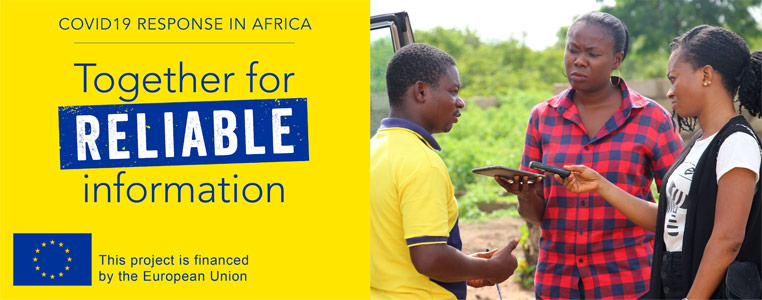Last update: 23 March 2021
A risk mapping done by the Africa Center for Strategic Studies outlines the vulnerabilities and immense impact COVID-19 has in Sub-Saharan Africa.[1] Solutions to restrict the outbreak of COVID-19 in parts of Asia and Europe – such as lockdowns, frequent hand washing, 1.5 meter distancing economy, and general social distancing – are inconceivable in many parts of Africa. Lockdowns will bring the entire informal economy to a standstill. In overcrowded urban areas and IDP/refugee camps millions of people live in close quarters without electricity or tap water, posing an extra challenge in containing COVID-19. Furthermore, medical infrastructure, especially intensive care facilities, are limited and concentrated in capital cities depriving the masses. Similarly, there is a lack of testing facilities and protective gear.
Furthermore, a pervasive lack of government transparency, combined with long-standing weaknesses in the media environment also makes the population more vulnerable to dis- and mis-information. In turn, the lack of available information, resources, and of freedom of movement for journalists, coupled with increased internet interference and censorship, further hamper the provision of adequate, fact based, relevant information for populations at risk. Media houses are finding it difficult to adapt their work culture to ensure safety and security of journalists in gathering information, while remaining connected with their audiences and hosting programmes. Social distancing and working online remain big challenges as well. In short, COVID-19 has great implications for the media sectors and societies at large in Sub-Saharan Africa.

As a result, Free Press Unlimited, ARTICLE 19, Deutsche Welle Akademie, Fondation Hirondelle, International Media Support, Reporters Without Borders and UNESCO have joined forces for the project ‘COVID-19 Response in Africa: Together for Reliable Information’, funded by the European Commission’s Directorate-General for International Cooperation and Development (DG DEVCO). This consortium, led by Free Press Unlimited, is implementing this 18-month project as of 1 August 2020. The project’s objective is facilitating the provision of reliable and critical information about the coronavirus that currently does not reach populations at risk as operations of a number of independent media outlets in Sub-Saharan countries are being hampered by the pandemic. To achieve that, this project provides support to media stakeholders in Sub-Saharan Africa who are left with little income-generating options due to COVID-19. Many activities undertaken will provide these media stakeholders time to adapt and survive the crisis caused by COVID-19 while enabling them to provide relevant and life-saving information on the pandemic to their audiences.
See here for the website on the project COVID-19 Response in Africa: Together for Reliable Information (available in English and in French).
See here for the dedicated Facebook page.
Who: ARTICLE 19, Deutsche Welle Akademie, Fondation Hirondelle, Free Press Unlimited, International Media Support, Reporters Without Borders, UNESCO
When: 1 August 2020 – 31 March 2022
Where: across Sub-Saharan Africa with an emphasis on the following 17 countries: Ethiopia, Kenya, Somalia, Sudan, South Sudan, Tanzania, Benin, Burkina Faso, Côte d’Ivoire, Ghana, Guinea, Nigeria, Senegal, Democratic Republic of Congo, Mozambique, South Africa, Zimbabwe
Donor: European Commission’s Directorate-General for International Cooperation and Development (DG DEVCO)
Overall objective: to contribute to better informed populations that are aware of how to protect themselves against COVID-19, to mitigate risks and to limit the number of casualties
Specific objective: to provide the essential, timely support and materials to independent media and journalists in Sub-Saharan Africa to fulfill their role of providing quality and reliable information and to help them overcome the risks they are facing during the crisis
